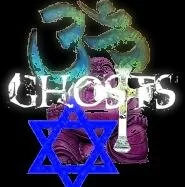
Examining beliefs about ghosts found within various religions...
Ghosts are found within many religions, though many people from western cultures are not aware of it. Most religions teach that a spiritual aspect of human beings, whether the religion calls it a soul, spirit or ghost, survives beyond the destruction of the physical body. Ghosts may best be described as people who upon death, remain earthbound, and interact with mankind, being trapped within the earth realm due to emotional trauma of some sort. Many religions believe that addictions, lusts, tragedies and unfinished business seem to be the predominant causes of many a ghosts' sufferings.
Let's look at some of the common core teachings that most of the major religions agree with each other on.
Ghosts Suffer
Hinduism, Buddhism and Judaism all teach that ghosts exist and many ghosts suffer for various reasons. They teach that attachments to places, people, possessions or pleasures can cause ghosts to remain attached to the Earth realm.
Ghosts Possess or "Attach"
All three religions mentioned above teach that ghosts can possess, or attach to, the bodies of the living in order to influence the host . Of note, these religions do not teach that demons possess human beings. The idea of ghosts influencing the living, in one way or another, is very real. (See Ghost Possession.)
Ghosts Should Be Treated With Compassion
The religions of Buddhism, Judaism and Hinduism all teach that ghosts are suffering people who may need our help to move on beyond their state of turmoil. Hinduism and Buddhism have religious rituals to honor deceased ancestors which are believed to help free their souls to move on in their life journey (see Hungry Ghosts). Certain sects of Buddhism teach how to free ghosts from earthly bondage by directing them toward the golden light. Judaism's practioners of ritualist Kabbalah teach a process of ghost exorcism that brings healing to both the ghost and the host. All three religions agree that ghosts are hurting people, earthbound and in need of the living's assistance. (See How to Get Rid of Ghosts.)
Some teachings of Christianity, such as Catholicism, allows for a time of purgatory, that metaphorically lines up with the idea that earthbound ghosts are people who temporarily suffer for a time on Earth until they are spiritually cleansed and able to move beyond the natural realm. In contrast, fundamental christianity does not allow beliefs in ghosts, as doctrines teach that the existence of ghosts are impossible due to short-minded beliefs that a person must be either in heaven or hell. Perhaps, teachers of such beliefs should consider that the idea of suffering and hell is really about the frame of mind (fearfulness, condemnation, guilt, etc.) that ghosts find themselves in, and does not need to be an eternal place of torment - an idea that was created hundreds of years after Jesus by religious leaders.
Why would Jesus say, "The gates of hell shall not prevail," if it were not true? If one looks at the teachings credited to Jesus, and is open to understanding them as metaphors (they were parables), then it becomes abundantly clear that the teachings of the Jewish Rabbi, who we call Jesus, lines up perfectly with some of the ritualistic teachings of (Jewish) Kabbalah and also with some of the teachings of Buddhism and Hinduism!
From that perspective, we are able to see that perhaps the major religions mentioned above have more in common than many believe. A fact that may help bring the whole of humanity together, spiritually speaking, through understanding what happens to people after their bodies die, ghost behavior and haunting. If we are able to identify with the lost and hurting in the unseen realm, who likely coexist with all of us, then maybe, we can be of help not only to them but to ourselves and each other.

